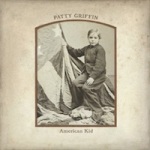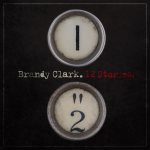Kelly Willis

Back Being Blue
* * * 1/2
Kelly Willis retreated forty miles south of Austin, Texas to The Bunker, her husband Bruce Robison’s rustic recording studio located on a five-acre plot with a fishing hole, to record Back Being Blue, her first solo album in a decade. The album, produced by Robison, was recorded to analog tape using an old board he frequently has fixed from a trusted source in Nashville.
Back Being Blue consists of ten songs, six of which Willis wrote solo, the most she’s ever contributed to any of her seven albums. She says the songs aren’t deeply personal or autobiographical, nor is the album intended as a showcase for her distinctive singing voice.
Willis instead drew inspiration from the melting pot of influences that first inspired her to make music, from Marshall Crenshaw to Skeeter Davis and Crystal Gayle. But one artist, in particular, guided her way:
“Nick Lowe was a real north star for me on this record. Like, ‘What would do Nick Lowe do?’ He was able to write modern songs that were like old songs—that had a cool soul/R&B/Buddy Holly kind of a thing that had sounds from that early rock and roll era—but that felt really fresh and exciting and now. I just love the A-B-C’s of rock and roll. Before everybody had to start piling on different things to make it sound different, it had all been done. With this record I was trying to go with the styles of music that have really impacted my life, especially when I moved to Austin as a teenager, and make it country-sounding like Austin used to sound.”
Lowe may have inspired the album as a whole, but it’s Gayle’s influence driving the sublime title track, which kicks off a trifecta of songs about men, and their inability to treat women with the respect they deserve. A mellow guitar-driven melody framing Willis’ biting and direct lyric:
She’s back in my baby’s arms
And I’m back being blue
The percussion-heavy “Only You” finds a man using the excuse that’s what lovers do to justify his consistently inconsistent behavior — he loves his woman one day than ignores her the next. “Fool’s Paradise,” which beautifully blends fiddle with Urban Cowboy-era guitar riffs, finds a man thinking he can emotionally manipulate a woman who sees him coming from a mile away:
I’m not riding this town
You’ll tell me again if you come back around
All that ache in your voice, like I don’t have a choice
It’s a fool’s paradise
Willis wrote the barnburner “Modern World” to vent her frustrations about how cell phone use has led to a society that’s less engaged. The fiddle returns on the gorgeous “Freewheeling,” about the wish to let go of old anxieties and live a less mentally-stressful life. She’s back in a mournful state of mind on “The Heart Doesn’t Know,” a striking ballad about that feeling of knowing a relationship is over, yet unresolved feelings still remain.
For the remaining four songs, Willis sought contributions from other writers. “Afternoon’s Gone Blind” is a sonically stunning slice of traditional country written by Eric Brace and Karl Straub about an individual having a difficult time with the end of a relationship.
The most eccentric number on Back Being Blue is “I’m A Lover (Not A Fighter),” which was originally released as a single by Davis in 1969 when it peaked at #9. The song exudes a lot of charm, and has an engaging melody, but threw me with the dated reference to Cassius Clay. Willis says she did entertain the idea of swapping out the late boxer’s name for the more contemporary Sugar Ray, but ultimately decided the song should stand as written. It’s growing on me, but it’s not my favorite song on the album, especially with the heavy reverb casting a film over the recording.
It’s no surprise one of the album’s most well-written numbers comes from the pen of Rodney Crowell. He recommended she cut “We’ll Do It For Love Next Time,” a romantic yet risqué ballad about a couple going to second base. Willis handles the song, which features a nice dose of mandolin throughout, with the ease she’s brought to her most stellar recordings over the last 28 years.
Willis closes Back Being Blue with Jeff Rymes and Randy Weeks’ “Don’t Step Away,” a song sent to her by her hairdresser, who recommended it after Willis said she needed one or two more songs to finish the album. The song is bristling with Austin funk, and a fair amount of guitars to bring up the tempo.
When I first listened to Back Being Blue I thought it was less than the sum of its parts. I hold Kelly Willis in the highest esteem and this just wasn’t making it for me. My opinion only changed when I dug into the context behind the album and understood what Willis was going for with the vibe and her relaxed vocals. Back Being Blue is a great album, even if some of her compositions feel unnecessarily repetitive. I’m glad she’s back and steering the conversation in her direction again.













